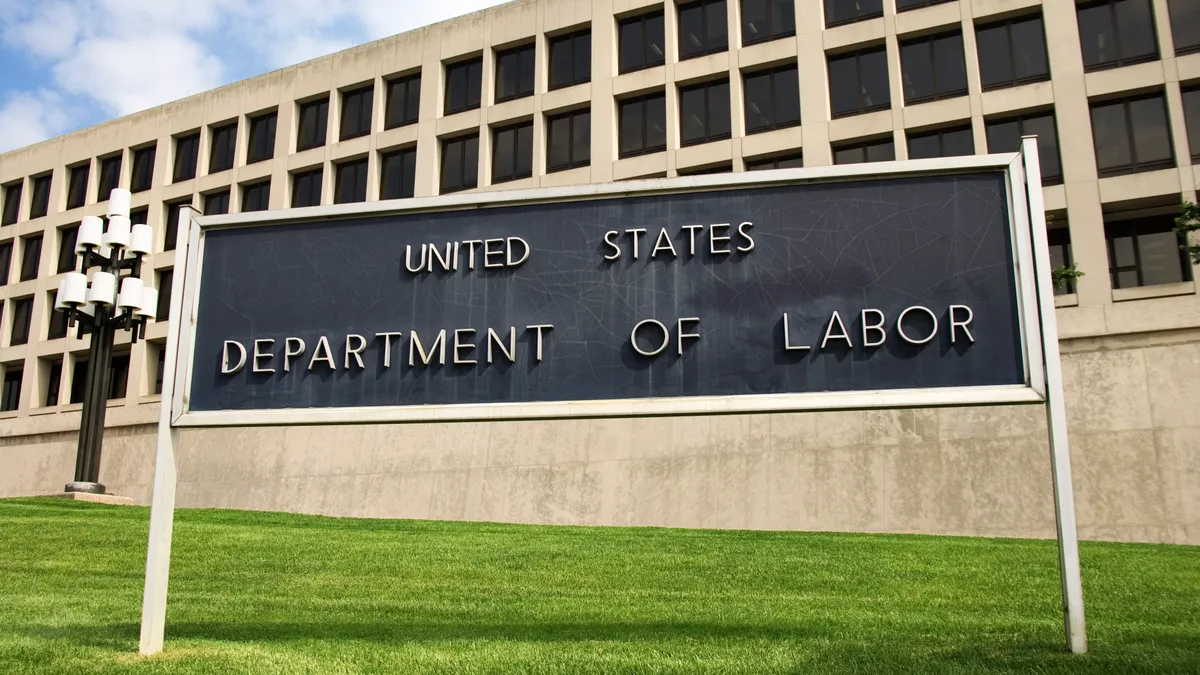Three moderate Senate Democrats made waves March 30, joining Republican members of the chamber in voting down President Joe Biden's pick for wage and hour administrator at the Department of Labor, David Weil. He was the first Biden nominee to fail to move through the confirmation process.
Weil is not an unseasoned candidate; rather, the role would have been a reprise of his time in the same position during the Obama administration, from 2014 to 2017. Support for Weil's candidacy was then divided along party lines, with no moderate Democrats demuring.
Disagreement over Weil's candidacy was even more contentious this time around. Biden initially selected him for the position last June, but the decision to advance his nomination deadlocked in an 11-11 tie in the Committee on Health, Education, Labor and Pensions. Such a circumstance requires the full Senate to vote for the candidate to proceed, which never happened last year.
Biden renominated Weil in January. While he narrowly made it through the HELP committee on an 11-10 vote, the Senate voted 47-53 to block a final vote on his candidacy, effectively ending his nomination.
Why is the Brandeis University economics professor so controversial among politicians? That can largely be chalked up to his views on gig workers and their classification as independent contractors — an issue that has riled some employers and business associations.
Weil has been an outspoken advocate for classifying more workers as employees. In 2019, he penned an op-ed for the Los Angeles Times making that argument. "There are certainly companies whose workers operate in the gray area between employees and contractors. In those cases, workers in some ways act like employees … but in other ways they act like contractors," Weil wrote. "Uber and Lyft are not among those close, gray area cases. Their status as employers is really quite clear."
The question of gig-worker classification is a national one, but the battle has been playing out largely in California, where many of the companies employing such workers are headquartered. California legislators sought to redefine gig workers as employees through the passage of California Assembly Bill 5 in 2019; in response, Uber, Lyft, DoorDash and other companies employing gig workers poured millions into Proposition 22, a ballot initiative that would carve out app-based transportation and delivery workers from AB5's enforcement. The measure passed with a 59% vote, but a judge ruled last August that the proposition was unconstitutional. The decision is being appealed by a coalition of companies and organizations.
Although California is the main battleground for the fight over gig-worker classification, politicians nationwide have taken notice. Business and political associations have made sure of it.
"California can sometimes be a first mover on issues such as this," Neil Eddington, associate in employment law at Michelman & Robinson LLP, told HR Dive. "Other places kind of follow suit."
Weil's failure to move through confirmation indicates that even moderate politicians are feeling the pressure from the business community — and that change to labor practices may not happen as rapidly as some employers fear, or without fierce resistance.
In addition to his assertion that gig workers should be classified as employees, Weil took some other actions at the DOL that failed to endear him to employers, Eddington noted. Under his direction, the agency raised the threshold for overtime pay to $47,476 annually, which would have qualified millions more for such payment. The rule was eventually abandoned by the agency after legal challenges, but a similar threshold may be on the horizon, sources told the Society for Human Resources Management. DOL's regulatory agenda reflects that plan as well.
In a lengthy explanation of his opposition to Weil, Senator Richard Burr, R-N.C., a member of the HELP committee, named these and other objections to Weil's candidacy. "Dr. Weil's tenure at the Wage and Hour Division became notorious for burdening business with sweeping restrictions on the use of independent contractors, a new 'joint employer' edict that imposed crushing operational and legal costs on small companies, and an overtime rule that blatantly ignored plain statutory text," Burr wrote.
On the opposing side of the issue, Patty Murray, D-Wash., expressed disappointment that the Senate failed to confirm Weil, calling him "an exceptionally qualified nominee with a long track record fighting to ensure workers get the wages they have earned."
The three Democrats that voted with Republicans were Mark Kelly and Kyrsten Sinema of Arizona and Joe Manchin of West Virginia; Manchin said "Mr. Weil's track record and previous statements are problematic for many West Virginia employees and business owners. Ultimately, I could not support Mr. Weil because I do not believe that the health and well-being of our small businesses and the employees who rely on their success would be his utmost priority." The Arizona senators did not release statements.
Despite the Senate's rejection of Weil, it's unlikely that the trajectory of the DOL will change in a major way, Eddington said. With or without Weil at the helm, the agency has been strongly enforcing wage and hour violations, and has only signaled plans to speed up.
"There's a whole layer of context that kind of supersedes the legal issues. These confirmations are highly, highly political affairs," Eddington said. "But … it doesn't really change that much at the same time. It's not like Biden's going to turn around now and nominate someone who is that different, you know, politically, or in how they interpret the law."






















